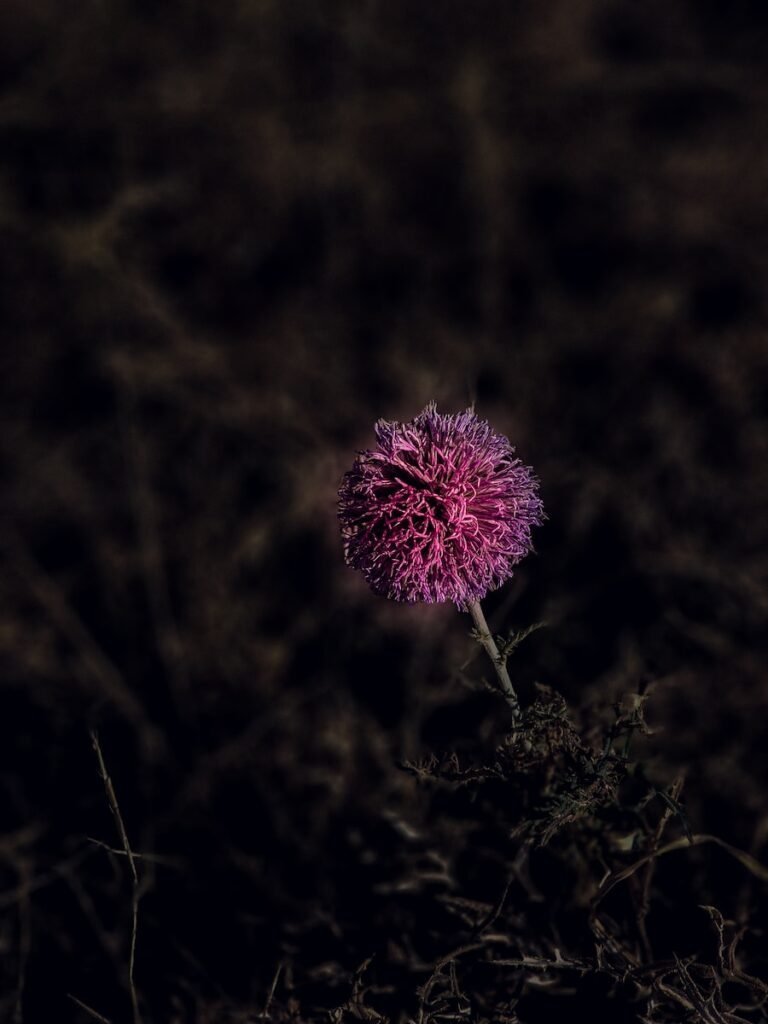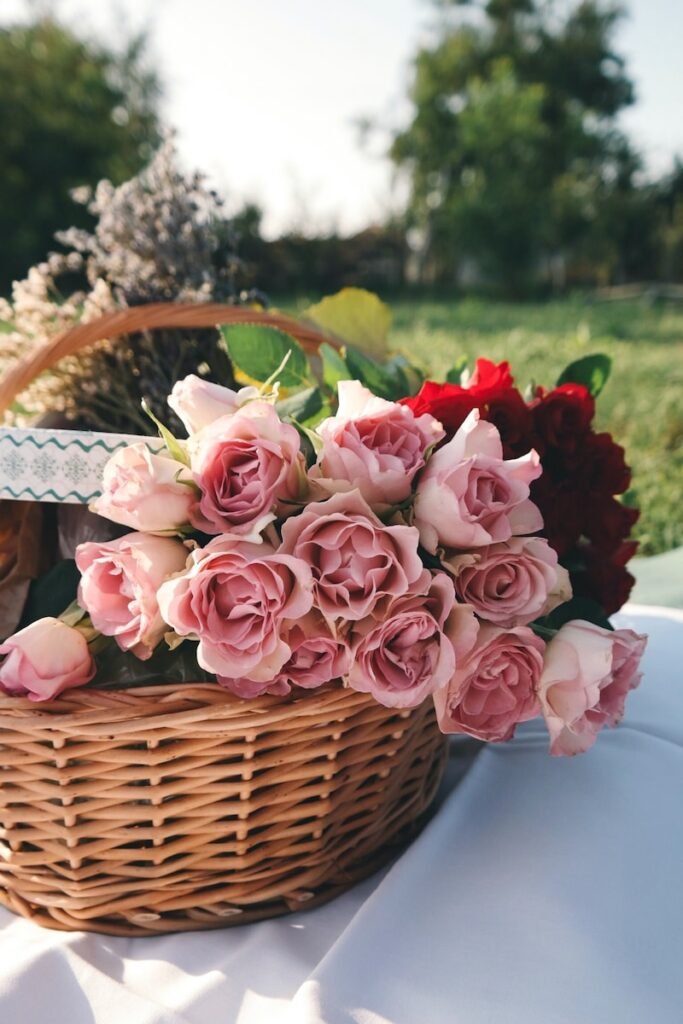The Surprising Health and Well-being Benefits of Flowers
Flowers have long been cherished for their beauty and fragrance, but their impact extends far beyond aesthetics. Research has revealed that flowers possess numerous health and well-being benefits that are truly remarkable. From boosting mood to enhancing productivity, flowers have the power to positively influence our mental, emotional, and physical states. In this article, we will explore the surprising ways in which flowers can improve our overall well-being.

Aromatic Bliss: The Therapeutic Effects of Floral Scents
The captivating scents emitted by flowers have a profound impact on our well-being. Aromatherapy, a holistic healing practice, utilizes essential oils extracted from flowers to promote relaxation, reduce stress, and uplift mood. The scent of lavender, for example, has been shown to have a calming effect, while the aroma of citrus flowers can invigorate and increase energy levels. Breathing in these floral scents can help alleviate anxiety and promote a sense of calm and tranquility.

Boosting Mood: How Flowers Improve Mental Well-being
It comes as no surprise that being surrounded by flowers can have a significant impact on our mood. Studies have shown that the presence of flowers triggers positive emotions, such as happiness and joy, while reducing feelings of anxiety and depression. Whether it’s a vibrant bouquet on the dining table or a single stem in a vase, flowers have the ability to uplift our spirits and create a more positive and optimistic mindset.
Flowers have long been admired for their beauty, but did you know that they can also have a positive impact on our mental well-being? The concept of “Flower Power” refers to the idea that flowers have the ability to boost our mood and improve our overall mental health. In this article, we will explore the science behind flower power and delve into the relationship between flowers and mental well-being.
Flowers have a unique way of evoking positive emotions and reducing stress levels. Scientific research has shown that exposure to flowers can have a direct impact on our mood and mental well-being. When we are surrounded by flowers, our brain releases dopamine, a neurotransmitter that is associated with feelings of pleasure and happiness. This release of dopamine helps to uplift our mood and reduce feelings of anxiety and depression.
Furthermore, research has shown that flowers can also improve our cognitive abilities. A study conducted at Harvard University found that participants who had flowers in their environment performed better on memory and attention tasks compared to those who did not have any flowers present. The presence of flowers in our surroundings can help to enhance our ability to focus and concentrate, thus improving our overall mental performance.
The relationship between flowers and mental well-being can be attributed to the concept of biophilia, which refers to the innate connection between humans and nature. As social beings, we have a deep-rooted need to be connected to our natural environment. Flowers, with their vibrant colors, pleasing scents, and graceful forms, provide a connection to nature that can have a profound impact on our mental well-being.
Flowers have also been found to have specific psychological effects. For example, the color of flowers can influence our mood. Research has shown that vibrant and warm-colored flowers, such as red and yellow, can evoke feelings of happiness, excitement, and energy. On the other hand, cool-colored flowers, such as blue and purple, can create a sense of calmness and relaxation. The scent of flowers can also have an impact on our mental state, with certain scents being associated with positive emotions and relaxation.
Flower power is not just a whimsical concept; it is backed by scientific evidence that highlights the positive effects of flowers on our mental well-being. Whether it’s the release of dopamine, the improvement in cognitive abilities, or the connection to nature, flowers have the power to uplift our mood, reduce stress, and improve our overall mental health. So, the next time you’re feeling down or stressed, consider surrounding yourself with nature’s mood boosters – flowers.

Stress Relief: Unveiling the Calming Power of Flowers
In today’s fast-paced world, stress has become a common and often overwhelming part of our lives. However, flowers have the remarkable ability to alleviate stress and promote relaxation. The sight and scent of flowers have been shown to decrease levels of cortisol, the stress hormone, leading to decreased feelings of anxiety and improved mental well-being. Simply taking a moment to appreciate the beauty of flowers can have a calming effect on the mind and body.
In today’s fast-paced and demanding world, finding effective ways to manage stress and anxiety has become essential for maintaining overall well-being. While there are numerous methods available, one natural and often overlooked remedy is the presence of flowers. Flowers have a unique ability to calm the mind, uplift the spirit, and promote a sense of tranquility. In this article, we will explore the healing power of flowers and delve into the science behind how they alleviate stress.
Flowers have long been cherished for their beauty, but their impact goes far beyond aesthetics. Research has shown that simply being in the presence of flowers can have a profound effect on our emotional well-being. The vibrant colors and delicate fragrances of flowers stimulate our senses, triggering the release of endorphins that promote feelings of happiness and relaxation.
Moreover, studies have revealed that flowers can reduce feelings of anxiety and stress. For instance, a study conducted at Harvard Medical School found that patients recovering from surgery experienced lower stress levels when they were surrounded by flowers. Another study conducted by Rutgers University showed that the presence of flowers in the home not only increased feelings of happiness but also reduced levels of depression and anxiety.
Flowers also have a unique ability to connect us with nature. As humans, we have an innate bond with the natural world, and spending time in nature has been proven to reduce stress and improve mental health. By bringing flowers into our living spaces or spending time in gardens and parks, we can tap into this connection and experience a greater sense of calm and tranquility.
The science behind how flowers alleviate anxiety lies in their impact on our brain chemistry. When we see or smell flowers, our brain releases neurotransmitters like dopamine and serotonin, which are known as the “feel-good” chemicals. These neurotransmitters are responsible for regulating our mood and emotions, and their release can help reduce stress, anxiety, and even symptoms of depression.
Furthermore, flowers have been shown to have a positive effect on our physiological responses to stress. Research conducted by the University of North Florida found that simply touching or smelling a flower can lower blood pressure and heart rate, leading to a greater state of relaxation. The visual stimulation provided by flowers also helps divert our attention from negative thoughts and worries, redirecting our focus towards beauty and serenity.
In addition to their direct physiological effects, flowers can also indirectly alleviate anxiety by promoting social connections. Sharing flowers with loved ones or receiving them as gifts can strengthen relationships and foster feelings of support and love, ultimately reducing anxiety levels.
In a world where stress and anxiety are all too common, it is important to explore various avenues for relief. While flowers may seem like a simple and insignificant remedy, their impact on our well-being should not be underestimated. Whether it is through their beautiful colors, enchanting fragrances, or their ability to connect us with nature, flowers have a unique ability to soothe our minds and provide respite from the daily grind. So the next time you find yourself feeling overwhelmed, take a moment to immerse yourself in the beauty of flowers and experience the calming influence they offer.

Healing Touch: Flowers in Traditional Medicine
Since ancient times, flowers have been used in traditional medicine to treat various ailments. Many cultures around the world have incorporated flowers into their healing practices, recognizing their potent medicinal properties. For example, chamomile flowers are known for their soothing properties and are frequently used to alleviate digestive issues and promote better sleep. Hibiscus flowers are rich in antioxidants and have been traditionally used to support heart health and regulate blood pressure.

Enhancing Productivity: The Impact of Flowers in Workspaces
Flowers have the ability to enhance productivity and creativity in workspaces. Research has shown that having flowers in the office or workspace can improve concentration and memory retention. The vibrant colors and natural elements of flowers create a visually stimulating environment, which can energize the mind and boost cognitive performance. Additionally, flowers can create a more inviting and pleasant atmosphere, contributing to increased job satisfaction and overall well-being.
Better Sleep: The Soothing Influence of Flowers in Bedrooms
Many flowers possess calming and sedative properties that can promote a better night’s sleep. Lavender, in particular, has been extensively studied for its sleep-enhancing effects. The scent of lavender flowers has been found to reduce insomnia symptoms, improve sleep quality, and decrease anxiety levels. Placing a small bouquet of lavender flowers on the bedside table or using lavender essential oil in a diffuser can create a soothing and peaceful atmosphere in the bedroom, conducive to a restful night’s sleep.
A peaceful night’s sleep is essential for our overall well-being and productivity. One way to enhance the serenity of your bedroom is by incorporating the power of flowers into your sleep sanctuary. Flowers have a remarkable effect on our mood and emotions, and when strategically placed in our bedroom, they can create a calming and tranquil environment conducive to a restful sleep. In this article, we will explore the benefits of using flowers to enhance bedroom serenity and provide tips on how to harness their tranquil energy for a peaceful night’s sleep.
Flowers have a unique ability to evoke positive emotions and create a sense of calmness in our surroundings. When it comes to our bedrooms, creating a serene environment is crucial for a restful sleep. By incorporating flowers into your bedroom decor, you can transform the space into a soothing sanctuary that promotes relaxation. Opt for flowers with soft colors such as lavender, pink, or white, as they are known to have a calming effect on the mind and body. Place a vase of fresh flowers on your nightstand or dresser to bring a touch of nature into your bedroom, instantly adding a sense of tranquility to the space.
In addition to their calming effect, flowers also enhance air quality by increasing oxygen levels and reducing pollutants. Some flowers, such as jasmine and lavender, release a pleasant fragrance that can aid in inducing sleep and reducing anxiety. Consider placing a potted jasmine plant or lavender sachets near your bed to enjoy the soothing aroma as you drift off to sleep. Not only will these flowers enhance the ambiance of your bedroom, but they will also contribute to a healthier and more restful sleep environment.
To fully harness the tranquil energy of flowers for a peaceful night’s sleep, it is important to choose the right varieties and placement. Lavender, known for its calming properties, is one of the most popular flowers for the bedroom. Consider placing a lavender plant on your windowsill or using lavender-scented candles or essential oils to create a relaxing atmosphere. Chamomile and jasmine are also excellent choices as they promote relaxation and can help reduce stress and anxiety.
When arranging flowers in your bedroom, opt for simplicity and minimalism. A clutter-free space will further enhance the serenity and tranquility. Choose one or two flower arrangements that complement the overall decor and color scheme of your bedroom. Additionally, ensure that the flowers are well-maintained and fresh, as wilted flowers can have the opposite effect and detract from the peaceful ambiance.
By incorporating flowers into your bedroom, you can create a serene and tranquil environment that promotes a restful sleep. Flowers have the power to evoke positive emotions, improve air quality, and reduce stress and anxiety. Whether it’s the calming scent of lavender, the soothing energy of chamomile, or the tranquil ambiance of fresh blooms, flowers can truly enhance the serenity of your sleep sanctuary. So, why not harness the power of flowers and give yourself the gift of a peaceful night’s sleep?

Immune Support: How Flowers Strengthen Your Body’s Defenses
Flowers not only delight our senses but also offer immune-boosting benefits. Several varieties of flowers, such as echinacea and elderflower, have been used for centuries to support the immune system. These flowers contain natural compounds that have antimicrobial and anti-inflammatory properties, helping to strengthen the body’s defenses against infections and diseases. Including these flowers in your diet or consuming them as herbal teas can provide a natural boost to your immune system.
Natural Pain Relief: Flower Remedies for Aches and Pains
Flower remedies, also known as flower essences, have gained popularity for their potential to alleviate physical pain and discomfort. Remedies such as chamomile, calendula, and arnica have been traditionally used to relieve headaches, muscle aches, and joint pain. These flowers contain bioactive compounds that can reduce inflammation and provide a natural alternative for pain relief. Applying creams or oils infused with these flower essences can provide soothing relief to aching muscles and joints.
Indoor Gardening: Bringing Nature’s Health Benefits Indoors
Bringing flowers indoors through indoor gardening can have numerous health benefits. Indoor plants and flowers not only add beauty to our living spaces but also improve air quality by removing toxins and increasing oxygen levels. Studies have shown that indoor plants can reduce stress, improve focus and concentration, and even enhance mood and creativity. Creating a small indoor garden with a variety of flowering plants can be a simple and effective way to reap the benefits of nature in the comfort of our homes.

Flower Power: Tapping into the Energizing Effects of Flowers
Flowers possess an inherent vitality that can have an energizing effect on our well-being. The vibrant colors, intricate patterns, and delicate structures of flowers stimulate our senses and awaken our curiosity. Spending time in nature, surrounded by blooming flowers, can rejuvenate the spirit and boost energy levels. Whether it’s taking a stroll through a flower garden or simply admiring a colorful arrangement, flowers have the power to reinvigorate and uplift our mood.

The Science Behind It: Exploring the Mechanisms of Floral Health Benefits
Scientists have been uncovering the mechanisms behind the health benefits of flowers. Studies have suggested that exposure to flowers and nature can increase levels of dopamine and serotonin, neurotransmitters associated with happiness and well-being. Additionally, the visual stimulation provided by the vibrant colors of flowers triggers positive emotions and helps reduce stress. The fragrance of flowers can also have a direct impact on the brain, influencing emotions, memory, and even sleep patterns. As research in this area continues to unfold, we gain a deeper understanding of the science behind the remarkable health benefits of flowers.
From their therapeutic scents to their immune-boosting properties, flowers have proven to be a powerful force in promoting health and well-being. Whether in the form of aromatherapy, traditional medicine, or simply as a decorative element in our surroundings, flowers have the ability to positively impact our mental, emotional, and physical states. So next time you come across a beautiful bouquet or a blooming garden, take a moment to appreciate the hidden power of flowers and their remarkable ability to enhance our overall well-being.